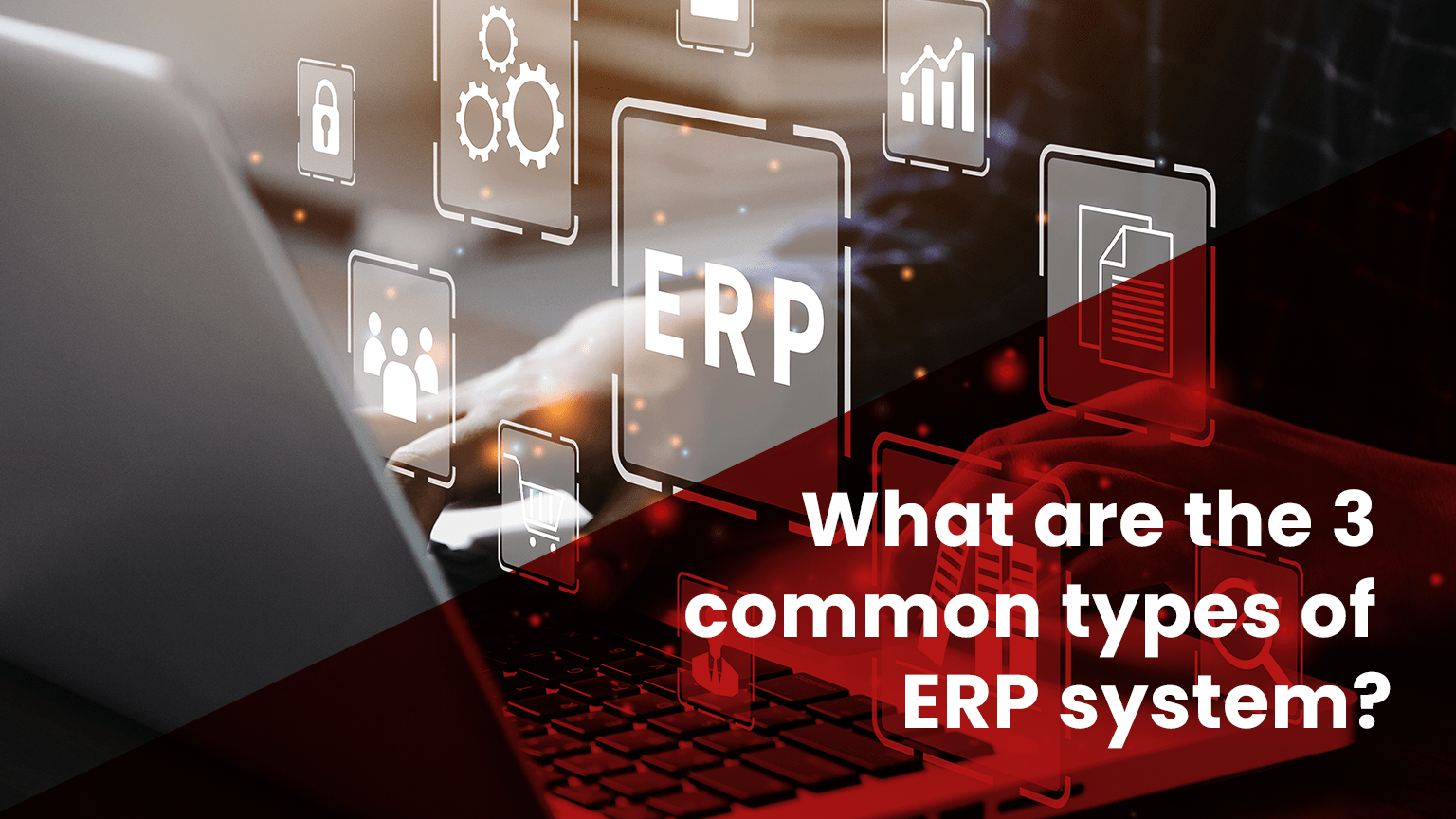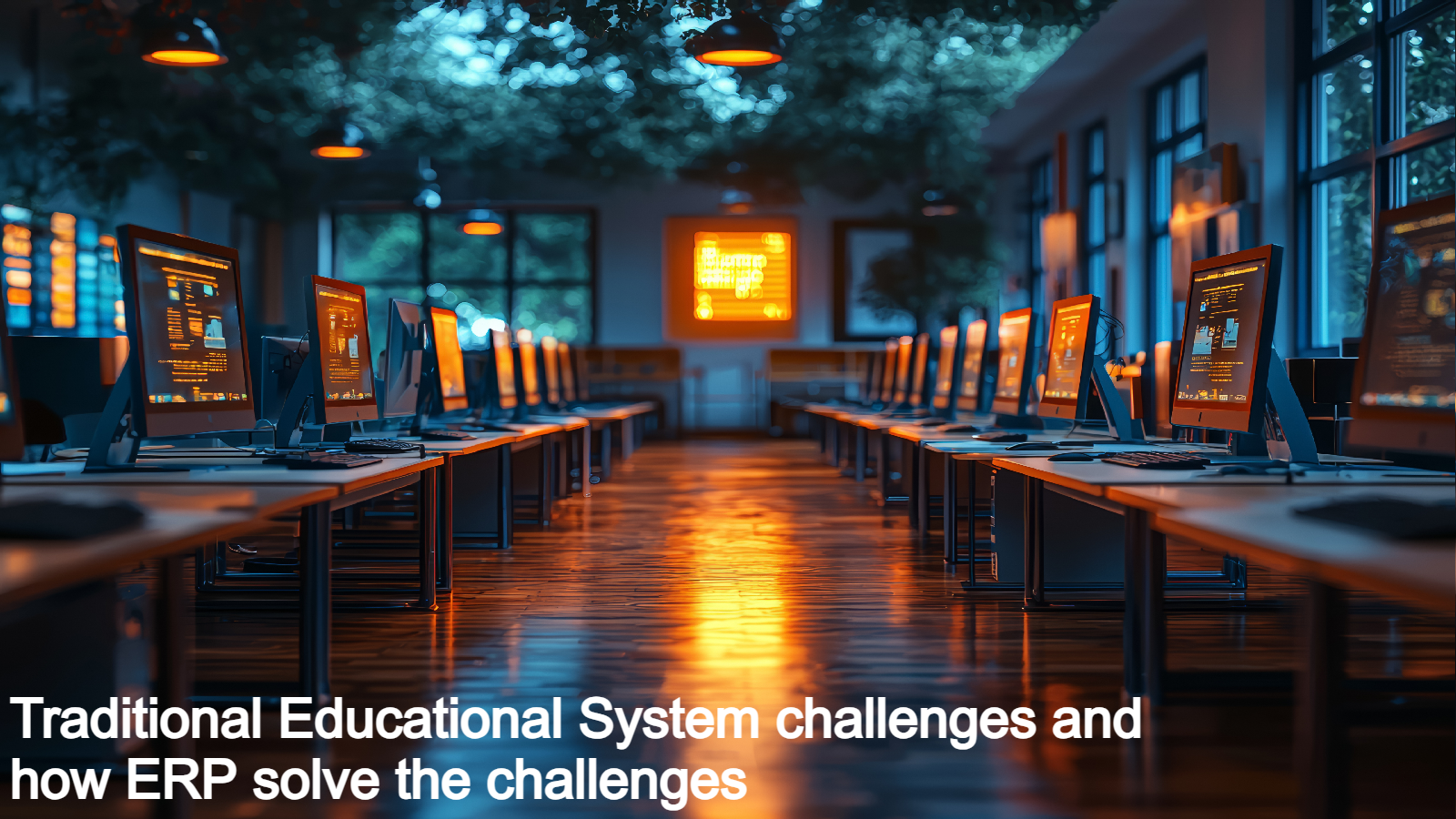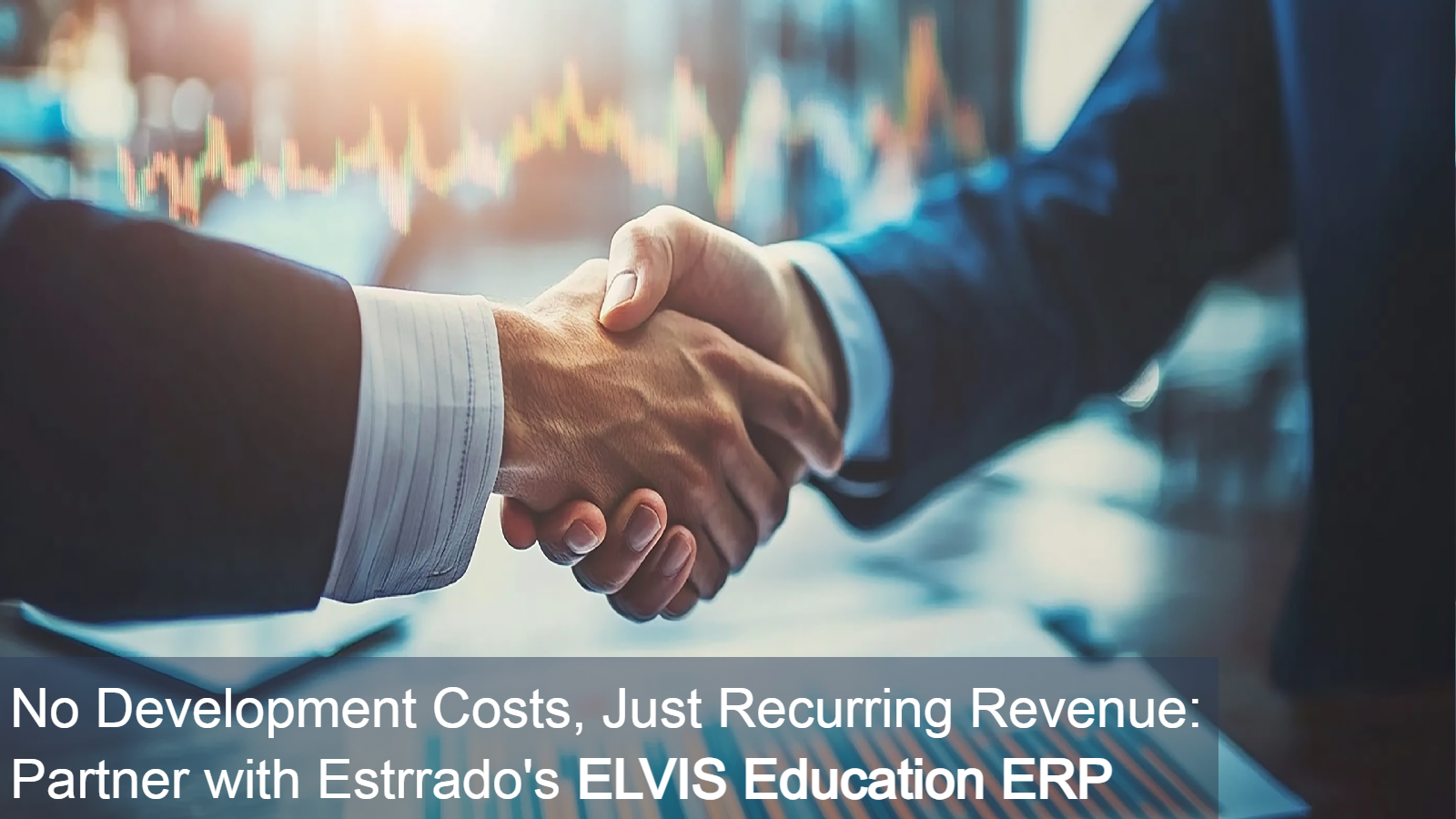3 Common Types of ERP Systems
In today’s fast-paced business landscape, efficiency and organization are crucial. That’s where Enterprise Resource Planning (ERP) systems come into play. ERP systems are powerful tools that help companies streamline their operations, manage resources, and enhance decision-making processes. This comprehensive guide will explore the three common types of ERP systems, throwing light on their unique features, advantages, and use cases.
ERP Systems: A Transformative Technology
While Enterprise Resource Planning (ERP) systems started in the manufacturing sector, they are now in use in various industries, including education and automobile.
ERP systems centralize and integrate various business processes, offering a single platform that can handle everything from finance and human resources to supply chain management. These systems help organizations automate tasks, reduce manual work, and gain a competitive edge.
Let’s dive into the three most common types of ERP systems:
On-Premises ERP Systems
On-premises ERP systems are deployed locally within an organization’s infrastructure. These systems require a substantial initial investment, both in terms of hardware and software. However, they offer complete control and customization. Companies that prioritize data security and have unique business processes often opt for on-premises ERP systems.
Key Features of On-Premises ERP Systems:
Control and Customization:
- On-premises ERP systems give more control over their data and software, which is crucial for organizations with strict security and compliance requirements.
- They allow for a higher degree of customization to meet specific business needs.
Costs:
- On-premises systems involve higher initial capital expenses, including hardware and infrastructure investments.
- Ongoing costs include software updates, maintenance, and IT staff for system management.
Scalability and Maintenance:
- Scaling on-premises systems can be challenging, requiring additional hardware and infrastructure.
- Companies are responsible for managing updates, patches, and system maintenance, which can be time-consuming and demands a dedicated IT team.
Access and Implementation:
- Remote access to on-premises ERP systems may be limited, making secure methods for off-site access necessary.
- Implementing on-premises ERP systems often takes longer due to planning, hardware setup, and software configuration.
- Selecting the right ERP vendor is crucial for long-term support and maintenance.
Cloud-Based ERP Systems
Cloud-based ERP systems, also known as Software as a Service (SaaS) ERP, have gained immense popularity. These systems are hosted on remote servers and accessed via the Internet. They offer scalability, flexibility, and cost-effectiveness. Small to medium-sized businesses often find cloud-based ERP systems to be a perfect fit.
Key Features of Cloud-Based ERP Systems:
Accessibility and Cost-Effectiveness:
- Cloud-based ERP systems provide easy accessibility via the Internet, making it ideal for remote work and global teams.
- They often have lower upfront costs, as there’s no need for on-premises hardware and infrastructure investments.
- Costs are typically spread over time through a subscription-based model.
Scalability and Maintenance:
- These systems are highly scalable, making them suitable for growing businesses or those with fluctuating needs.
- Cloud providers handle system maintenance, updates, and security, reducing the IT burden on organizations.
Security and Integration:
- Cloud providers implement robust security measures, but data security also depends on provider capabilities and company best practices.
- Cloud ERP systems often offer easy integration with other cloud-based services and applications.
Implementation and Vendor Support:
- Implementation of cloud-based ERP systems is typically faster, as there’s no need for extensive hardware setup or configuration.
- Companies rely on the cloud provider for system support, updates, and security, emphasizing the importance of choosing a reliable vendor.
Compliance and Regulations:
- Companies must ensure that the chosen cloud ERP system complies with industry-specific regulations and data governance requirements.
- Cloud providers may offer tools and features to assist with compliance, but organizations are ultimately responsible for adhering to relevant regulations.
Hybrid ERP Systems
Hybrid ERP systems aim to combine the best of both worlds – on-premises and cloud-based systems. These solutions offer the flexibility of the cloud while allowing for local data storage and customization. Hybrid ERP systems are ideal for companies with diverse needs and data security concerns.
Key Features of Hybrid ERP Systems :
Customization and Control:
- Companies maintain control over sensitive data and customized on-premises components.
- They gain the flexibility and scalability of cloud-based solutions.
Scalability and Flexibility:
- Hybrid systems offer scalability and adaptability, enabling organizations to adjust to evolving needs and incorporate new technologies.
Cost Considerations:
- Costs include both on-premises hardware investments and cloud-based subscription fees. Therefore, the costs might be expensive.
- Effective budgeting and cost management are crucial in a hybrid setup.
Data Security and Compliance:
- Robust data security measures are essential in a hybrid system to protect sensitive information during transitions.
- Compliance with industry regulations is complex due to the mix of deployment models.
Performance and Access:
- Optimal performance in a hybrid ERP system relies on efficient data transfer between on-premises and cloud components.
- Ensuring consistent and responsive access for users is a priority.
Conclusion
ERP systems are revolutionizing how businesses are conducted by streamlining business processes, automating tasks, improving efficiency, and achieving long-term success. Therefore, choosing the right ERP system is a critical decision for any business.
Whether you opt for on-premises, cloud-based, or a hybrid solution, each type has its own set of advantages and challenges. To make an informed decision, consider your organization’s unique needs, budget, resources, strategic objectives, and long-term goals. Conduct thorough research on the different ERP systems available before selecting the one that aligns with your organization’s requirements.
For more information on ERP systems and how they take your business to the next level, contact Elvis ERP for a free consultation.
Frequently Asked Questions (FAQs)
What are the key considerations when choosing an ERP system?
Consider factors like your business size, budget, data security, and scalability.
Can a company switch from one ERP system to another?
Yes, it’s possible, but it can be a complex and costly process.
How can ERP systems enhance decision-making processes?
ERP systems provide real-time data and analytics, enabling more informed decisions.
Are there industry-specific ERP solutions available?
Yes, many ERP systems are tailored to specific industries, such as manufacturing or healthcare.
Is it essential to hire a consultant for ERP system implementation?
It’s advisable, especially for complex systems, as consultants can streamline the process and prevent costly mistakes.








